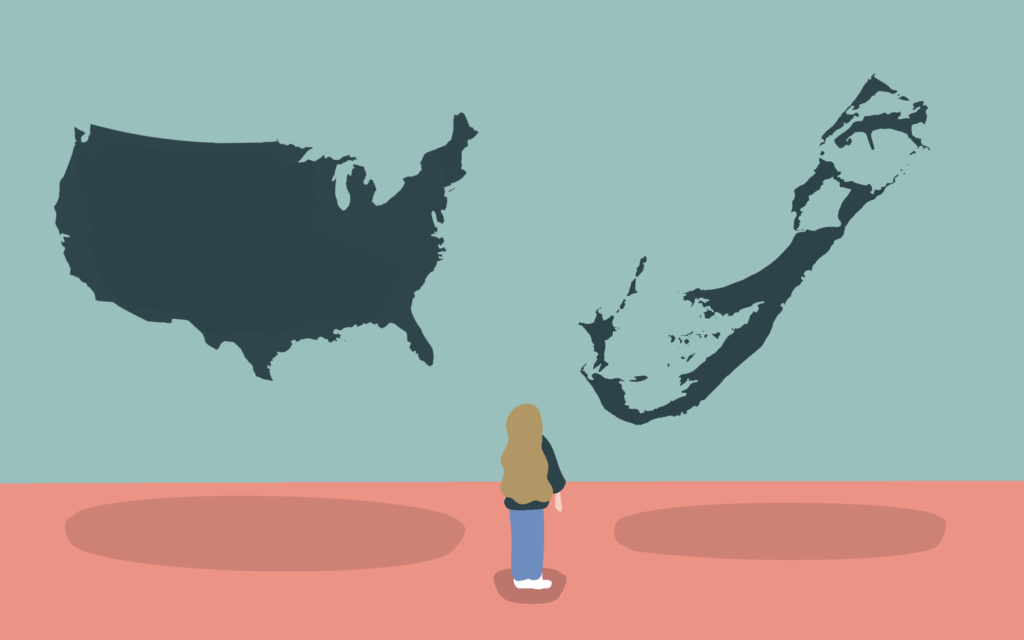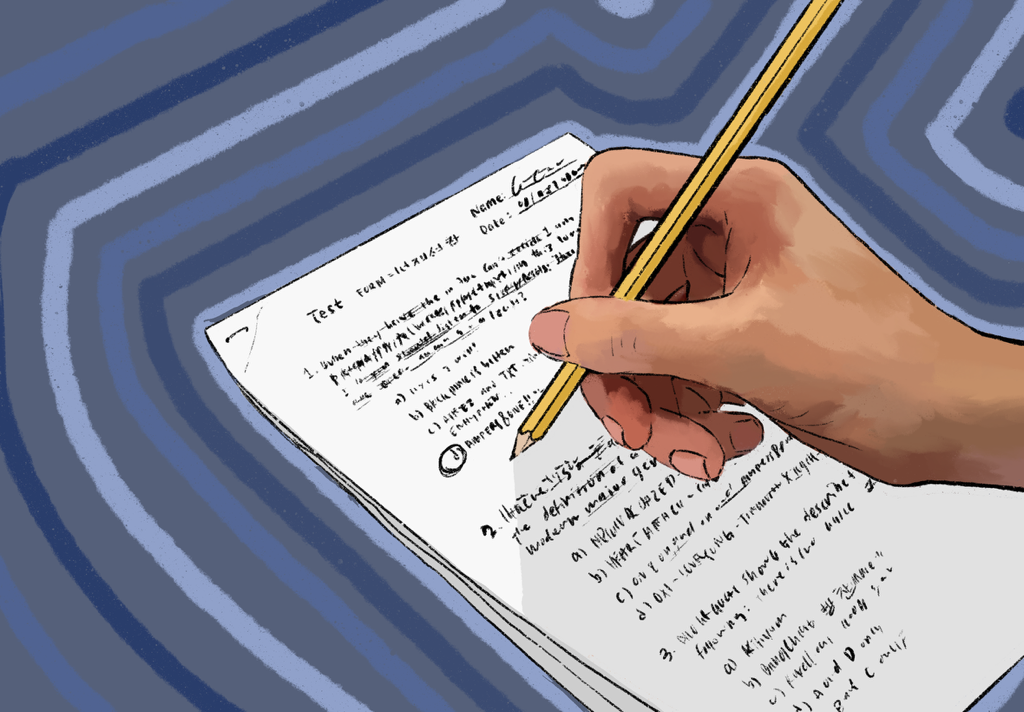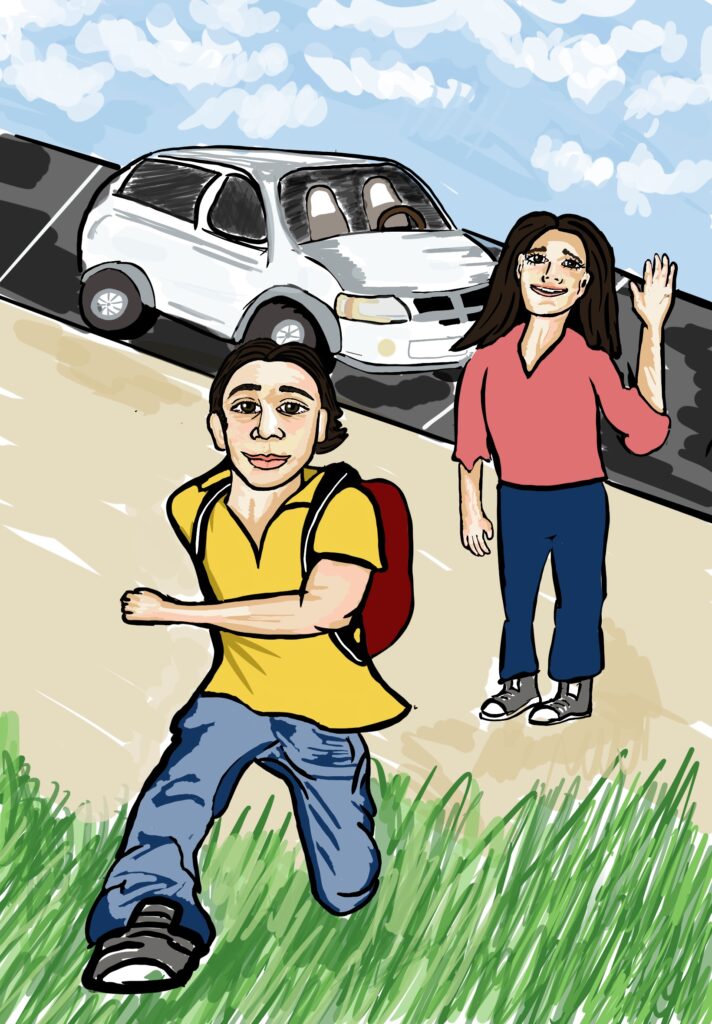
Graphic by Yujin Kim/The Choate News
Because Choate students live all over the world, one of the most common questions asked on the first day of classes or when meeting someone new is, “Where are you from?” For several years now, I’ve struggled to answer this question. I was born and raised in Bermuda, but I have an American passport only because of Bermuda’s protectionist policies, which include not having birthright citizenship. The government requires that native Bermudians are considered for jobs and opportunities first. I first began to realize that I did not entirely belong in Bermuda when my old school sent everyone emails about exciting programs that I couldn’t participate in because of my American citizenship.
According to the government, I am not Bermudian. Government action has made it difficult for me to obtain a Permanent Residency Certificate, which means that, after I turn 18, I will not be able to live in the country where I was born. Many Bermudians are also not welcoming of those, like my parents, who moved to the island for work — they believe that those people are taking jobs away from native Bermudians. Despite living in Bermuda all of my life, I am constantly reminded that it’s not my country.
Still, when I used to live in Bermuda year-round, I was okay with not being Bermudian. In Bermuda, I was called an American, so I at least felt like I belonged somewhere. However, this identifier that I had grasped for so long as a source of comfort changed when I left for boarding school in the United States. At Choate, surrounded by so many students from Connecticut or New York or California, I’m labeled as “the Bermuda girl,” the opposite of how Bermudians viewed me, and of how I’d come to perceive myself.
In truth, studying in the United States has made me realize how un-American I really am. Compared to Bermuda, everything is bigger and life moves faster in the United States — sometimes I feel like I can’t keep up. My childhood was spent in a completely different environment than most Americans: my school curriculum wasn’t centered around the United States, considering that Bermuda’s government is organized like that of the United Kingdom. Because of this, I never had discussions about American politics in a classroom setting until I came to Choate.
And yet my passport still says I belong here. It’s alienating to not identify with either the domestic or the international students.
The way I see myself in terms of my national identity has shifted many times. Honestly, I’m a little jealous of people who can confidently share their nationality, and I feel bad when I cannot provide a definite answer of where I’m from. For me, home has always been just where my family is, but people expect a more concrete answer.
I’m regularly asked why I would ever want to leave the beautiful island paradise of Bermuda. They don’t know my experiences, though. It was a lovely place to grow up, but it wasn’t a vacation every day. For me, it was simply where my brother and I started school and where my parents made their lives. I find myself unable to reply to this question, which gets too personal, too quickly. It makes me feel incredibly hopeless.
Because of this, I feel most secure in talking about my other identifiers, like my gender or religion. I invest so much of myself into these other identifiers, so I don’t lose control of how I see myself — but I still lack a sense of where I fit in. In a way, however, I feel like not belonging to a specific country is a part of my identity now, too.
It would be impossible to ignore the impact that living in Bermuda has had on my life — it’s always going to be a part of me. Still, I don’t know if I’ll ever feel fully a part of a specific place. I guess, if I’ve come to understand anything, it’s that nationalities alone shouldn’t define our identities. One day, I hope to be okay with not having the perfect, singular response to the question of where I’m from.




